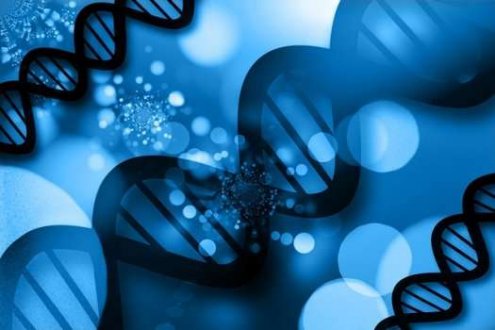Genetically Modified Foods and Their Impact on Human Health
Genetically Modified Foods and Their Impact on Human Health.Genetically modified foods (GM) are produced by transferring genes from one organism to another. GM crops have been approved by the FDA and are not considered dangerous.
However, there is some controversy over whether GM crops are safe for human consumption. Learn about the FDA’s regulation of GM crops.
QUIZ
Genetically modified foods are produced using biotechnology, which is controversial in some ways. However, in some cases, they have the potential to improve human health. One example is GM peanuts, which can help reduce aflatoxin and prevent celiac disease.
In addition, GM corn can drastically reduce mycotoxin levels, which can cause health problems and economic losses. Similarly, Golden Rice, a product genetically modified to contain vitamin A, can be very beneficial for the prevention of malnutrition.
While there is much controversy about GM foods, they have garnered a lot of public interest. A recent survey revealed that nearly one-in-six Americans are concerned about GM foods. Meanwhile, 37% of Americans care just a little about the issue.
Moreover, 15% don’t care at all. In addition, people who care about GM foods are more likely to follow the news about the issue.
FDA regulates GM foods
The FDA has consulted with scientists in recent years about the safety of genetically modified (GM) food products. Such foods may provide consumer benefits, such as reducing browning of apples after cutting, or lowering acrylamide production in potatoes.
These consultations are ongoing and will be completed in the summer of 2016. GM foods have not yet been sold to consumers, but small amounts will be available after the 2016 harvest.
Because these new technologies are so recent, there is a large amount of uncertainty regarding their impact on human health. However, the FDA and the EPA are working together to ensure safety and protect the environment.
The FDA’s voluntary Plant Biotechnology Consultation Program evaluates the safety of new GMOs before they are released on the market. This allows developers to work with the FDA on a product-by-product basis to determine if they are safe for human consumption.
They are considered safe
While there are many questions about the safety of genetically modified (GM) foods, most scientists believe that they are safe for human consumption. The main risks associated with GM foods include toxicity, allergenicity, and possible disruption of natural genes.
These concerns have led many countries to implement biosafety regulatory systems.
Studies have also shown that GMOs have been found to lower mycotoxins compared to conventional corn. A transgenic corn variety, Bt corn, is genetically modified to introduce Bt toxin, which is a natural insecticide produced by the bacterium Bacillus thuringiensis.
These changes make Bt corn less toxic than conventional corn. Mycotoxins are chemical compounds produced by fungi that can be harmful to human health. One of the most dangerous of these chemicals is aflatoxin, which causes liver cancer.
GM crops must undergo rigorous testing before they can be marketed. The EFSA recommends post-market monitoring of GM foods to ensure the safety of these crops. Generally, this monitoring is carried out if the GM food has altered nutritional composition or differs from conventional varieties. The monitoring will also look at the possibility of increased allergenicity associated with GMOs.
They can transfer genes to human DNA
If genetically modified food products are approved by the Food and Drug Administration, there are some concerns about the effects on human health. One concern is that the DNA in such foods may be unstable, causing damage to crops and possibly humans.
Genetically Modified Foods and Their Impact on Human Health. This is especially dangerous because mutations in DNA have been linked to cancer and other diseases. Hence, any substance able to cause mutations could have disastrous consequences on human health. Mutagenicity is the process of introducing a foreign substance to the body that causes a mutation. Luckily, there are ways to measure and compare the mutagenicity of different substances to determine their risk to human health.
Scientists like Bruce Ames have been pioneering the science of mutagenicity.
Although scientists have developed techniques to alter the genomes of plants, they do not believe that these techniques transfer genes to humans. Nevertheless, they know that nothing can be “proven safe”. GM foods have become agricultural mainstays and have won the support of the public.
They are more nutritious than conventional foods
Genetically Modified Foods and Their Impact on Human Health.There’s a lot of controversy surrounding genetically modified (GMO) crops. Some people believe that GM foods are unhealthy while others claim that they’re more nutritious. However, most studies have found that GMO crops are actually less harmful to the environment than conventional crops.
They use less water and require fewer pesticides. Another study found that GMO crops had a 22 percent higher yield than conventional crops. This means that fewer hectares of land are required for agriculture, and more land can be used for wildlife corridors and natural reserves.
Moreover, many GMO crops require less water than non-GM and organic varieties.
Another debate over GMOs and conventional foods revolves around vitamin content. Some researchers believe that GMOs have fewer vitamins than their non-GMO counterparts. However, this is not necessarily the case.
For example, the food industry has a trend of fortifying foods with vitamins. Most of these fortified foods come from GMO sources, including corn and soy. This process is allowed in certified organic foods, but it is not allowed in non-GMO Project-certified products.


Pingback: What Are Blood Types and What Do They Mean? -
Pingback: How to Control Your Cravings - Health
Pingback: Nervous System Training Vs Body Part Instruction what expert says - Health
Pingback: Human Rights Issues Have An Effect on Public Health now a days - Health